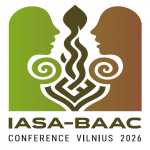4. Dialect study projects
From what has been said of the nature of dialect studies it is clear that some of them necessitate setting up an investigation project on an extensive scale. A lexicographical study of the whole language culminating in compiling a dialect dictionary or a comparative study covering the whole country with the intention of publishing a dialect atlas requires an active programme of data collection.
These investigations will produce manuscript material, usually in the form of phonetic transcriptions of spoken forms, written up in answer books designed to correlate with a linguistic questionnaire or vocabulary items taken down on index cards. Where sound recording is part of the project there will also be tapes of interviews in the field, incorporating questionnaire material and a corpus of uninterrupted speech.
Such linguistic projects, therefore, consist of a number of operations: planning the survey, field collecting and archiving of the data. After their completion the resulting studies can get under way. In setting up a project, however, certain basic requirements are necessary and decisions affecting the whole investigation have to be taken to ensure good order. These will be considered now.


